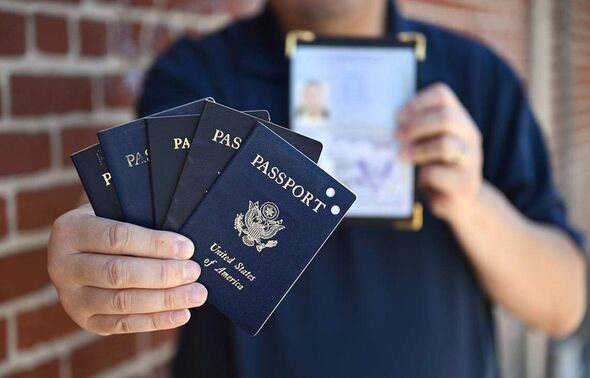Business
U.S. Passport Falls to 12th in Global Rankings for 2025

The latest release of the Henley Passport Index has seen the U.S. passport drop from 9th to 12th place in its global rankings for 2025. This shift marks a notable decline in the passport’s strength, as it now shares its position with the Malaysian passport, both offering visa-free access to just 180 countries.
The index evaluates the power of passports based on the number of destinations to which holders can travel without a visa. This year, the rankings analyzed 199 passports and 227 destinations, utilizing data from the International Air Transport Authority (IATA). Holding the top position is the Singaporean passport, which allows entry to 193 destinations worldwide.
Shifts in Global Rankings
Following Singapore, South Korea ranks second, and Japan comes in third. In a tie for fourth place, Germany, Italy, Luxembourg, Spain, and Switzerland grant access to 188 countries each. The fifth position is jointly held by Austria, Belgium, Denmark, Finland, France, Ireland, and the Netherlands, all providing entry to 187 countries.
The United Kingdom has also experienced a decline, falling from sixth to eighth place, now tied with Croatia, Estonia, Slovakia, Slovenia, and the United Arab Emirates. These passports allow access to 184 countries. Notably, the U.S. passport was ranked as the most powerful just last year, while the U.K. passport held the top spot in both 2013 and 2015. Since the implementation of Brexit, the U.K.’s ranking has continued to decline.
At the bottom of the index is Afghanistan, which occupies the 106th spot, offering visa-free access to only 24 destinations. This represents a decrease of two countries since the beginning of the year.
Impacts of New Border Check Systems
The release of the rankings coincides with the rollout of a new entry-exit border check system across Europe. This digital system, which began on October 12, 2023, requires non-EU passport holders and those crossing Schengen borders to provide biometric data and fingerprints. Passengers must scan their passports at automated self-service kiosks, which will replace traditional passport stamping for visitors to Europe’s Schengen area. The implementation of this system will occur gradually over the next six months, aligning with the updated passport rankings and reflecting the ongoing evolution of global travel regulations.
As the landscape of passport power continues to shift, these rankings highlight the need for travelers to stay informed about the evolving requirements and privileges associated with their national passports.
-

 Business1 week ago
Business1 week agoIconic Sand Dollar Social Club Listed for $3 Million in Folly Beach
-

 Politics1 week ago
Politics1 week agoAfghan Refugee Detained by ICE After Asylum Hearing in New York
-

 Health1 week ago
Health1 week agoPeptilogics Secures $78 Million to Combat Prosthetic Joint Infections
-

 Lifestyle1 week ago
Lifestyle1 week agoJump for Good: San Clemente Pier Fundraiser Allows Legal Leaps
-

 Science1 week ago
Science1 week agoResearchers Achieve Fastest Genome Sequencing in Under Four Hours
-

 Health1 week ago
Health1 week agoResearcher Uncovers Zika Virus Pathway to Placenta Using Nanotubes
-

 World1 week ago
World1 week agoUS Passport Ranks Drop Out of Top 10 for First Time Ever
-

 Business1 week ago
Business1 week agoSan Jose High-Rise Faces Foreclosure Over $182.5 Million Loan
-

 Entertainment1 week ago
Entertainment1 week agoJennifer Lopez Addresses A-Rod Split in Candid Interview
-

 Science1 week ago
Science1 week agoMars Observed: Detailed Imaging Reveals Dust Avalanche Dynamics
-

 Top Stories7 days ago
Top Stories7 days agoChicago Symphony Orchestra Dazzles with Berlioz Under Mäkelä
-

 World1 week ago
World1 week agoRegional Pilots’ Salaries Surge to Six Figures in 2025









